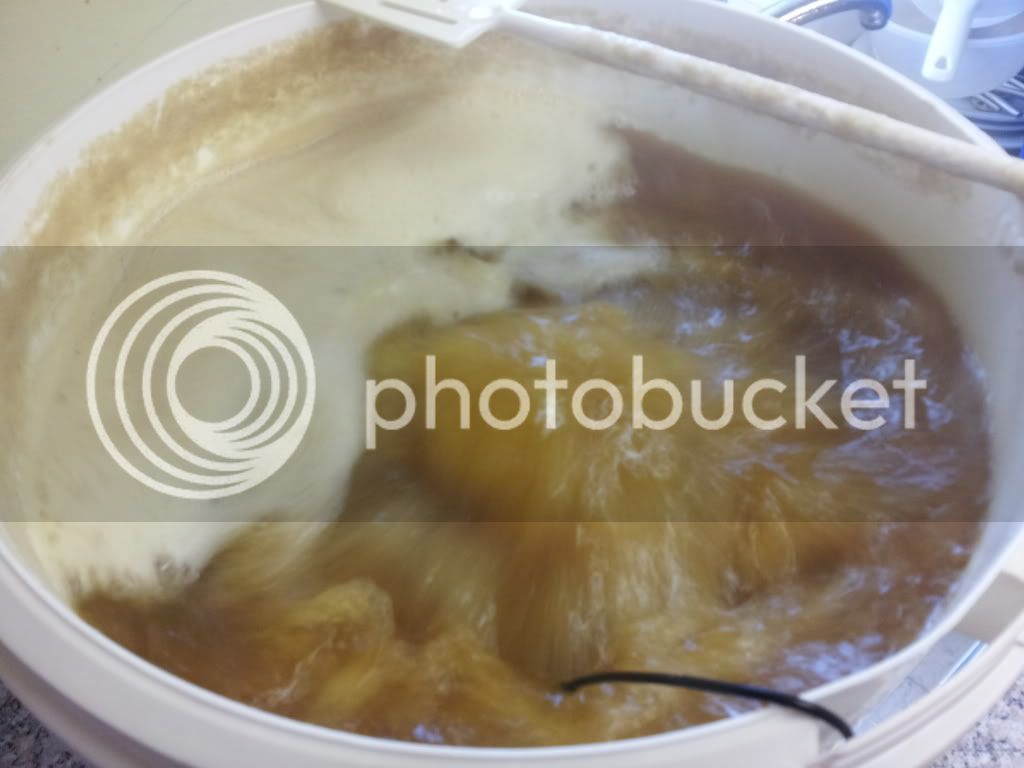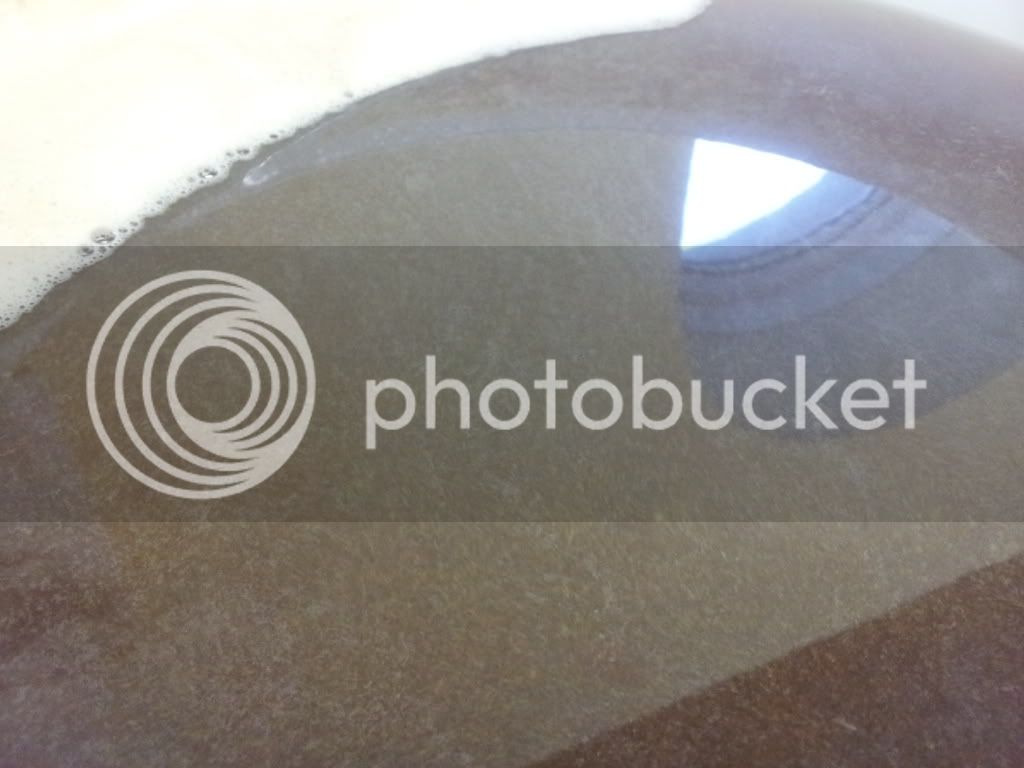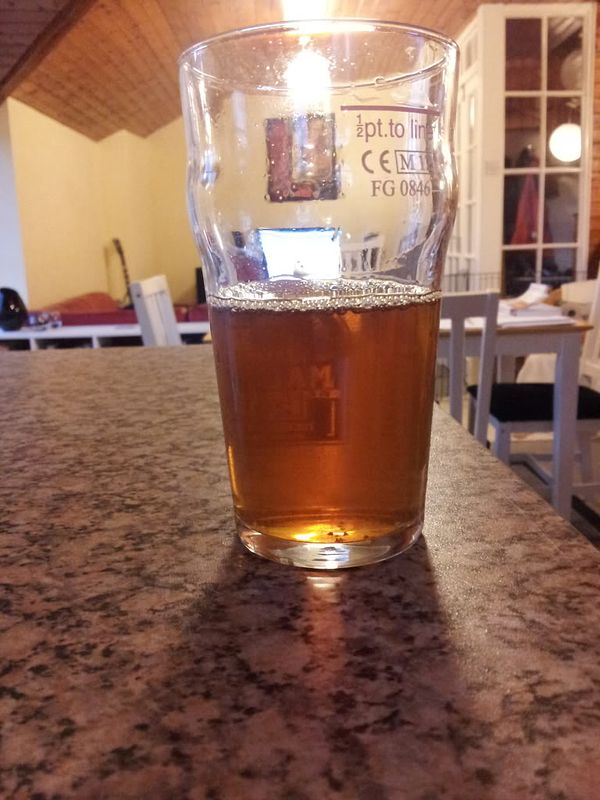Hi, I have just sampled my first all grain ale last night, and the taste is certainly an improvement to the extract kits I have previously used. However it is still a little cloudy, after going through my proceedure you may be able to shine some light on where I can improve on my next batch.
The first batch was a (small) 20 pint, just to get to grips with the actual process of all grain brewing.
I blindly followed my routine of extract kits as it has worked for me previously: ie
Brew beer,
Wait a couple of days at end of ferment and check FG for stability
Bottle, onto a level teaspoon of sugar
Keep in warm place for 3/4 days
Move to garage (beer clear after 14 days)
Wait another 14 days or so before drinking
As I mentioned the beer would always clear during the period in the garage.
Now on reflection, there are a number of things I would do different on my next all grain batch which I would hope improve the clarity of the beer.
1 Leave beer in primary fermentor longer (up to two weeks for example) to allow yeast to fully do it's thing
2. Allow longer for beer to secondary ferment in a warmer place (two weeks)
3. Batch prime for carbonation
Any advice on the above would be useful.
There are also things I would like your advice on: (Whether they have any affect on the overall clarity of the beer or not)
1 I did not wait for the "hot break" to subside before adding hops and then timing the boil. Does this make a difference?
2. I added protoflac maybe a little early (30 mins from end of boil), again does this make any difference to the outcome?
3. After good advice from the forum members, I reduced my boiler deadspace from 5L to 0.5L using a 90 degree elbow and syphoning.
Now in doing this, am I bringing "dross" to the fermentor?, or again, does it matter?
(I am using a home made stainless steel hop strainer from a flexible water connector, would a copper pipe matrix be better?)
4. I forgot to let the trub settle after boiling for 90 minutes, does this affect the final clarity?
Please give me your thoughts and experience on this matter.
Best regards,
WM7793
The first batch was a (small) 20 pint, just to get to grips with the actual process of all grain brewing.
I blindly followed my routine of extract kits as it has worked for me previously: ie
Brew beer,
Wait a couple of days at end of ferment and check FG for stability
Bottle, onto a level teaspoon of sugar
Keep in warm place for 3/4 days
Move to garage (beer clear after 14 days)
Wait another 14 days or so before drinking
As I mentioned the beer would always clear during the period in the garage.
Now on reflection, there are a number of things I would do different on my next all grain batch which I would hope improve the clarity of the beer.
1 Leave beer in primary fermentor longer (up to two weeks for example) to allow yeast to fully do it's thing
2. Allow longer for beer to secondary ferment in a warmer place (two weeks)
3. Batch prime for carbonation
Any advice on the above would be useful.
There are also things I would like your advice on: (Whether they have any affect on the overall clarity of the beer or not)
1 I did not wait for the "hot break" to subside before adding hops and then timing the boil. Does this make a difference?
2. I added protoflac maybe a little early (30 mins from end of boil), again does this make any difference to the outcome?
3. After good advice from the forum members, I reduced my boiler deadspace from 5L to 0.5L using a 90 degree elbow and syphoning.
Now in doing this, am I bringing "dross" to the fermentor?, or again, does it matter?
(I am using a home made stainless steel hop strainer from a flexible water connector, would a copper pipe matrix be better?)
4. I forgot to let the trub settle after boiling for 90 minutes, does this affect the final clarity?
Please give me your thoughts and experience on this matter.
Best regards,
WM7793












![BREWING THERMOMETER STICKERS ACCURATELY MONITOR FERMENTING BEER & WINE LIQUID TEMPERATURES 5PCS HOME BREW SPIRITS WINE LCD ADHESIVE [US]](https://m.media-amazon.com/images/I/311DDjo2X3L._SL500_.jpg)
































